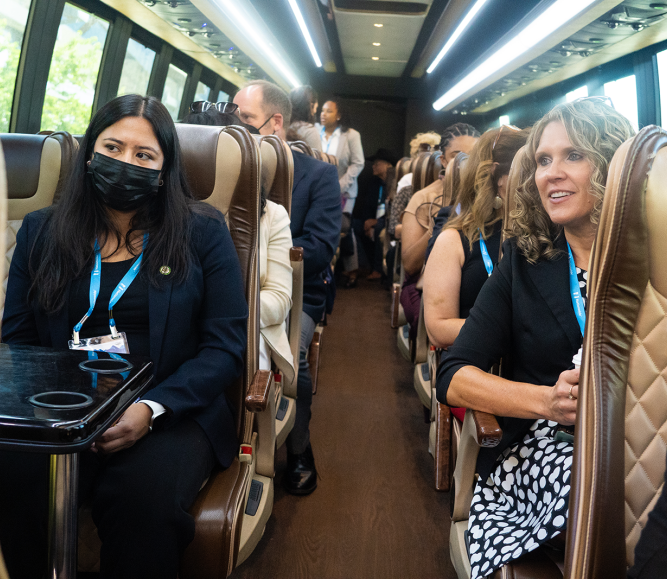Health does not have to be partisan: Talking about health in a way that resonates with everyone
Author
Upcoming Events
Related News

Key Takeaways
We live in polarized times, where views on nearly every topic seem to be splintered across political lines with little room for exchange or understanding. In fact, a recent study from Brown University showed that the United States is polarizing faster than other democracies, with Americans' sentiments toward members of the other political party worsening faster than those of residents of European and other prominent democracies.
Polarization has serious effects on our communities, including tangible impacts on the health of residents. For example, it fuels the spread of health misinformation, as established facts become conflated with value judgments and people and institutions reject information that does not align with their worldview. It also erodes trust, leading individuals to question the intentions of those around them and undermining the closeness of a community.
As we emerge from the 2024 election season, emotions are running high, and this splintered feeling may seem insurmountable. Research at de Beaumont has identified tangible steps county officials can take to heal divides and talk about community health in a way that resonates with everyone:
Find and call out shared values. Starting a conversation by recognizing commonalities helps to create trust and openness, even if participants disagree on a specific issue. Family, for example, is important to Americans across party affiliations. Naming the shared goal of protecting loved ones can temper the strength of a disagreement from one that feels fundamental – whether a decisionmaker cares about a resident’s family — to one that feels tactical — the best way to keep the family healthy.
Acknowledge the reasons for distrust. There are complex and systemic factors linked to distrust in government public health efforts, such as the lack of federal funding for health, the political influence of large pharmaceutical companies, structural and historical racism, and negative personal experiences with the health care system. Acknowledging these factors shows respect for the lived experience of residents and the views that may result, which is a necessary step toward rebuilding trust.
Celebrate and recognize the people behind the work. It is more natural to connect with people than with a faceless institution or an abstract field of study. It may not come as a surprise that perceptions of public health workers are consistently higher than those of the field or government agencies broadly. By humanizing the people who do public health work, county officials can foster their connection to residents and reinforce the many things they have in common as neighbors.
Make it concrete with examples. People generally support the broad goals of public health, such as prevention and protection, but have a harder time connecting them to their daily lives. Use examples that draw on residents’ shared experiences to show these goals in action, including how county leaders and public health workers have helped people and addressed real-world challenges in the community.
According to a 2023 survey by the nonpartisan group More in Common, 72% of Americans agree that we have a responsibility to connect with people who are different from us. That includes political differences; more than half of survey respondents expressed interest in having an extended conversation and in forming a close friendship with someone from a different political background. By fostering an environment where health and other topics can be discussed with nuance and respect, county officials can counter the effects of polarization and build their legacy of health.
Related News

HHS Secretary Kennedy touts fixes for obesity, chronic illness, mental health issues
Counties can help improve health outcomes by prioritizing prevention over treatment, Robert F. Kennedy Jr., secretary of the U.S. Department of Health and Human Services told NACo Legislative Conference attendees.

Drug tracking software helps counties identify trends, save lives
Florida counties are using an artificial intelligence tool called Drug TRAC to track and report drug trends, with the aim of providing quicker outreach and saving lives.

White House Executive Order establishes national substance use disorder response
On January 29, the White House issued an Executive Order (EO) establishing the Great American Recovery Initiative, a new federal effort aimed at coordinating a national response to substance use disorder (SUD).
County News
When the public health emergency declaration ends, can flexibility for public assistance be retained?

